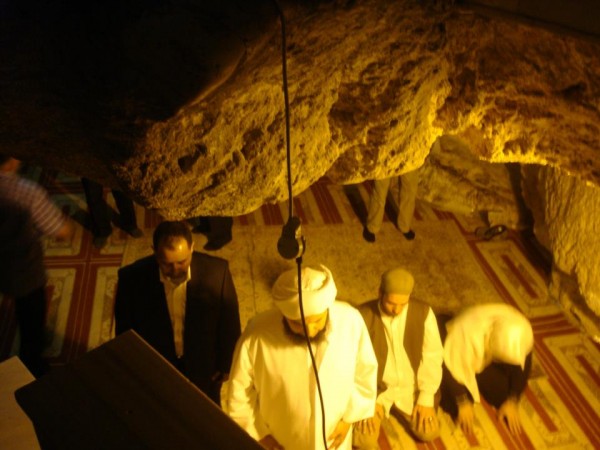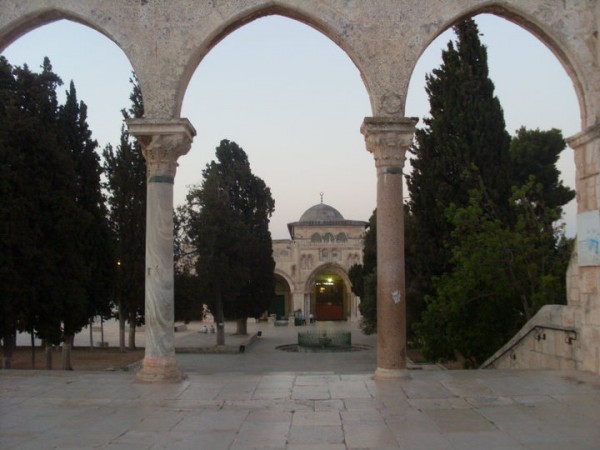When visiting Jerusalem your soul should have a connection with the visit – if that is there, victory will come.
It is the only land on earth where Allah, Most High, united over 124,000 Prophets upon it, including Abraham, Moses, Jesus, and the elect of Allah’s creation.
It is also the only place on earth that has a gateway and opening from the lower sensory world to the higher celestial realms.
The Dome of Rock,which has the famous golden dome on it- this is where the Prophet (peace be upon him) ascended the seven heavens from, to the Lote tree, and beyond it. Gabriel stopped at the Lote tree, and the majestic character of the Prophet (peace be upon him) went beyond. And through this same gateway, the Prophet (peace be upon him) descended.
When he descended, as soon as his blessed feet touch the earth – the blessed feet of the Prophet left an imprint on the rock. That’s why when you enter the Dome of Rock – you will find a bronze frame, and under it is a space to put your hand, and through it you can feel the blessed footprints of the Prophet (peace be upon him).
 When you go to the cave under the rock, and you stand in prayer, you will feel that you are praying somewhere where your spirit can transcend your body, pierce through the sensory world, to go through the upper worlds through that gateway.
When you go to the cave under the rock, and you stand in prayer, you will feel that you are praying somewhere where your spirit can transcend your body, pierce through the sensory world, to go through the upper worlds through that gateway.
That’s what words can describe of the meanings of visiting Jerusalem.
As for anything else, the only thing I can say in summary to you is: Go to Jerusalem!
Every time you go to Hajj, Umrah and to visit the Prophet (peace be upon him), go to Jerusalem.
Go to the Palestinian hotels, and eat in the Palestinian restaurant, and buy from Palestinian traders – since of the 50,000 of the native Jerusalemites both Muslim and Christian, 70% of them live below the poverty line. 40% of them are now forced to leave the city go to the West Bank in order to be able to earn a morsel to survive. When people stopped visiting al Aqsa, it affected their businesses and their livelihood, which was lost. The students of the extremist Zionist seminaries, whose Rabbis have sanctioned the killing of Palestinian children – not a week goes by but they go into the courtyard in the haram of al-Aqsa mosque and dance. If the courtyard and haram was filled with people praying all year round, like in Mecca and Madina, then do you think that they will be able to do this? If it was filled with pilgrims?
It is expected that if you start going in large numbers, sooner or later you may be barred. But insist on going. This is your right. Raise your voices and seek your right. When you go, then, don’t go in a state of agitation or conflict. Some may find that as a justification to bar you. What we have to do, is learn how to resist tyranny and oppression with what is at hand.
Go there with your hearts, connected to the reality of the visit. Advise your Christian friends to visit to “Church of Resurrection” and “Bethlehem” – make this a point of common spirituality between you.
This will be the beginning of change, which will even start affecting the political arena.
May Allah enable us all, and grant us the opportunity to pray in Masjid al-Aqsa













